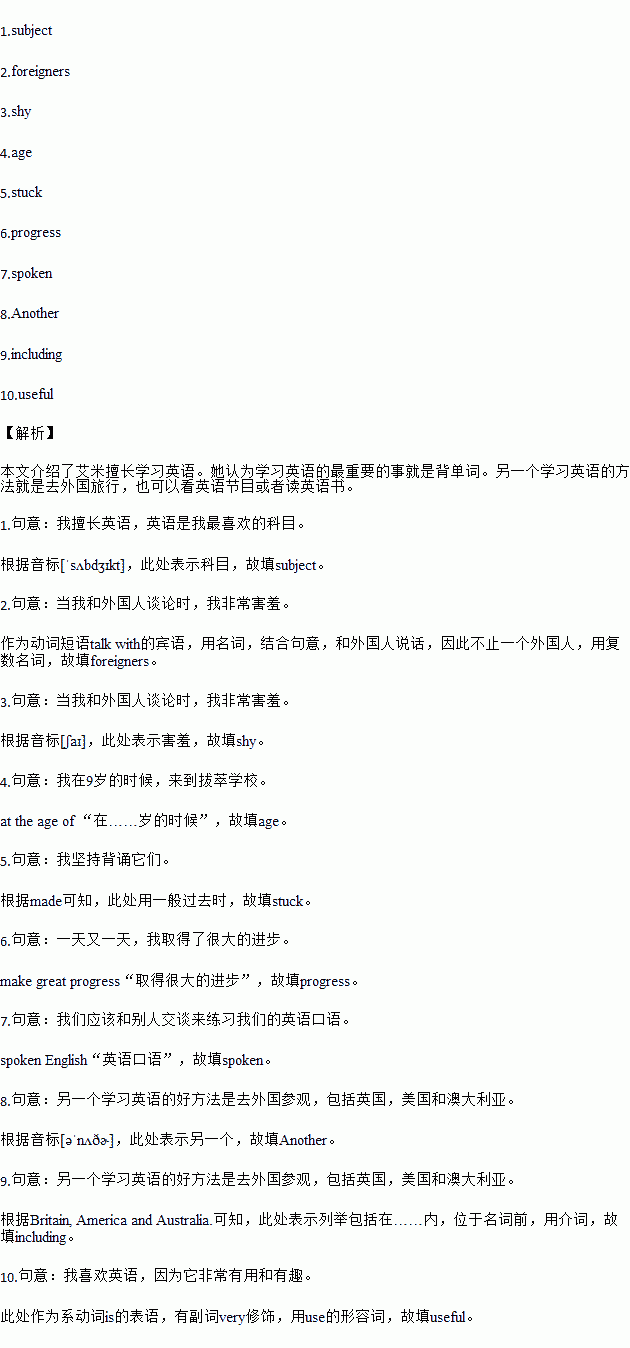题目内容
阅读下面短文,根据语境、音标或所给单词的提示,在每个空格内填入以恶搞恰当的词,要求所填的词意义准确、形式正确,使用短文意思完整、行文连贯。
Hello! My name is Amy. I am a middle school student. I am good at English and English is my favorite 1. [?s?bd??kt]. I began to learn English when I was five years old. When I talked with 2.(foreign), I was very 3.[?a?].
At the 4. of 9, I came to Bacui School. I studied English very hard. I think the most important thing about learning English is to learn new words. I5.(stick) to reciting them. Day by day, I made great 6.. If you want to learn English well, you must remember lots of words. And we should talk to others to practice our 7.(speak) English.8.[??n???] good way to learn English is to go to foreign countries for a visit,9. Britain, America and Australia. We can also watch English programs or read English books.
I love English because it’s very 10.(use) and interesting. I will try my best to speak English and learn English well in the future.
 阅读快车系列答案
阅读快车系列答案
